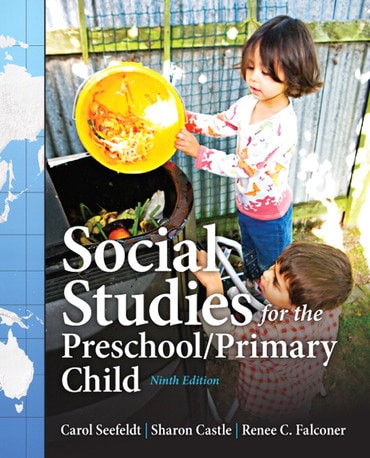Switch content of the page by the Role togglethe content would be changed according to the role
Social Studies for the Preschool/Primary Child, 9th edition
Published by Pearson (February 21, 2013) © 2014
- Carol Seefeldt University of Maryland
- Sharon D. Castle George Mason University
- Renee D. Falconer George Mason University
eTextbook
per month
$95.99
Need help? Get in touch

Digital Learning NOW
Extend your professional development and meet your students where they are with free weekly Digital Learning NOW webinars. Attend live, watch on-demand, or listen at your leisure to expand your teaching strategies. Earn digital professional development badges for attending a live session.

